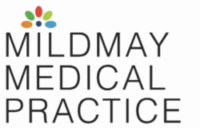Ordering repeat prescriptions
Online Access
The easiest and quickest way to order your prescription is the NHS App.
Alternatively repeat prescriptions can be requested in the practice post box or via our practice email – admin.mildmay@nhs.net.
Please allow 48 hours (2 working days) before collecting from the surgery during opening hours or from your nominated pharmacy if you have requested your prescriptions to be sent electronically.
We do not accept repeat prescriptions over the phone unless we know you are housebound.
For safety reasons, when requesting a prescription, we need an itemised request – the easiest way of doing this is via the NHS App. Requests that say “all my regular medicines” risk errors being made. If it is not clear on the written request, we receive then you will be contacted to clarify. If you are not able to use the app a list of your medicines can be provided by our reception team.
Electronic Prescribing Service
This practice is set up for the electronic prescription service.
This means that for most patients we can send your prescription to your chosen chemist directly saving you having to come down to the surgery.
To get your prescription sent to your chosen pharmacy you will have to ask reception to sign up.
For more information please click here.
Collecting your prescription
You will need to choose a pharmacy to collect your prescription from. We call this nominating a pharmacy.
You can change your nominated pharmacy at any time:
- on the app or website where you order repeat prescriptions
- at your GP practice
- at any pharmacy that accepts repeat prescriptions
Questions about your prescription
If you have questions about your medicine, your local pharmacists can answer these. They can also answer questions on medicines you can buy without a prescription.
The NHS website has information on how your medicine works, how and when to take it, possible side effects and answers to your common questions.
Medication reviews
If you have a repeat prescription, we may ask you to have a regular review. We will be in touch when you need to book an appointment for a review.
Prescription charges
Help with NHS costs
In England, around 90% of prescription items are dispensed free. This includes exemptions from charging for those on low incomes, such as:
- those on specific benefits or through the NHS Low Income Scheme
- those who are age exempt
- those with certain medical conditions
Find out more about prescription charges (nhs.uk).
What to do with old medicines
Take it to the pharmacy. Do not put it in your household bin or flush it down the toilet.
The Pharmacy First Service
As qualified healthcare professionals, pharmacists can offer advice and treatment on minor illnesses. This includes seven common conditions:
- Sinusitis (adults and children aged 12 years and over)
- Sore throat (adults and children aged 5 years and over)
- Earache (children and young adults aged 1 to 17 years)
- Infected insect bite (adults and children aged 1 year and over)
- Impetigo (adults and children aged 1 year and over)
- Shingles (adults aged 18 years and over)
- Uncomplicated urinary tract infections, like cystitis (women aged 16 to 64 years)
After a consultation with the pharmacist, the pharmacy will send a notification to the practice on the same day or on the following working day
They can also advise on medicine that you can buy without a prescription.
The ‘Self Care’ free over-the-counter medicines scheme for people and parents on low incomes, in full-time education or training, or who are homeless. Go to nclhealthandcare.org.uk/self-care to see if you are eligible to receive selected free medicines.
Many pharmacies are open until late and at weekends. You do not need an appointment.
Most pharmacies have a private consultation room where you can discuss issues with pharmacy staff without being overheard.

